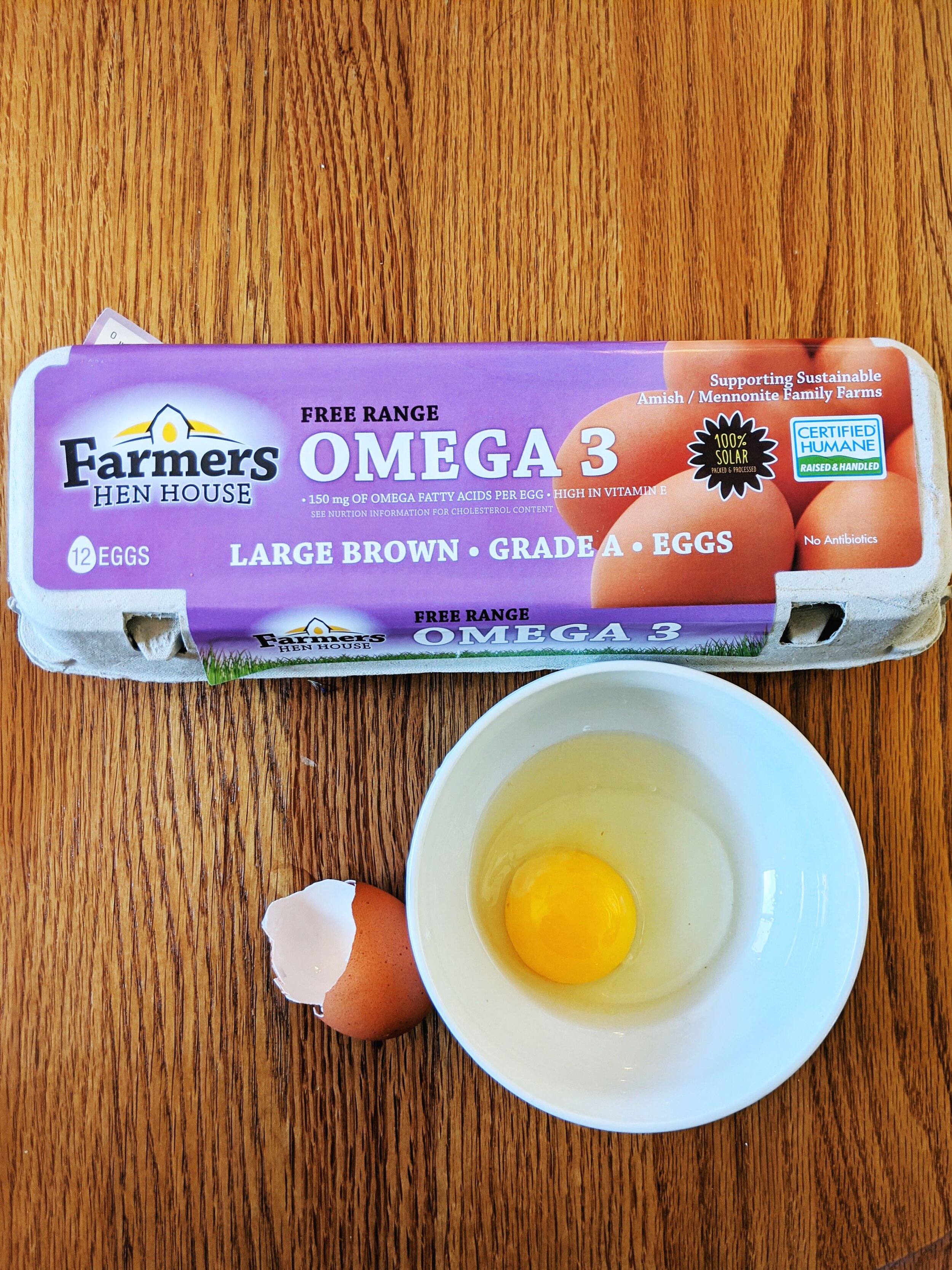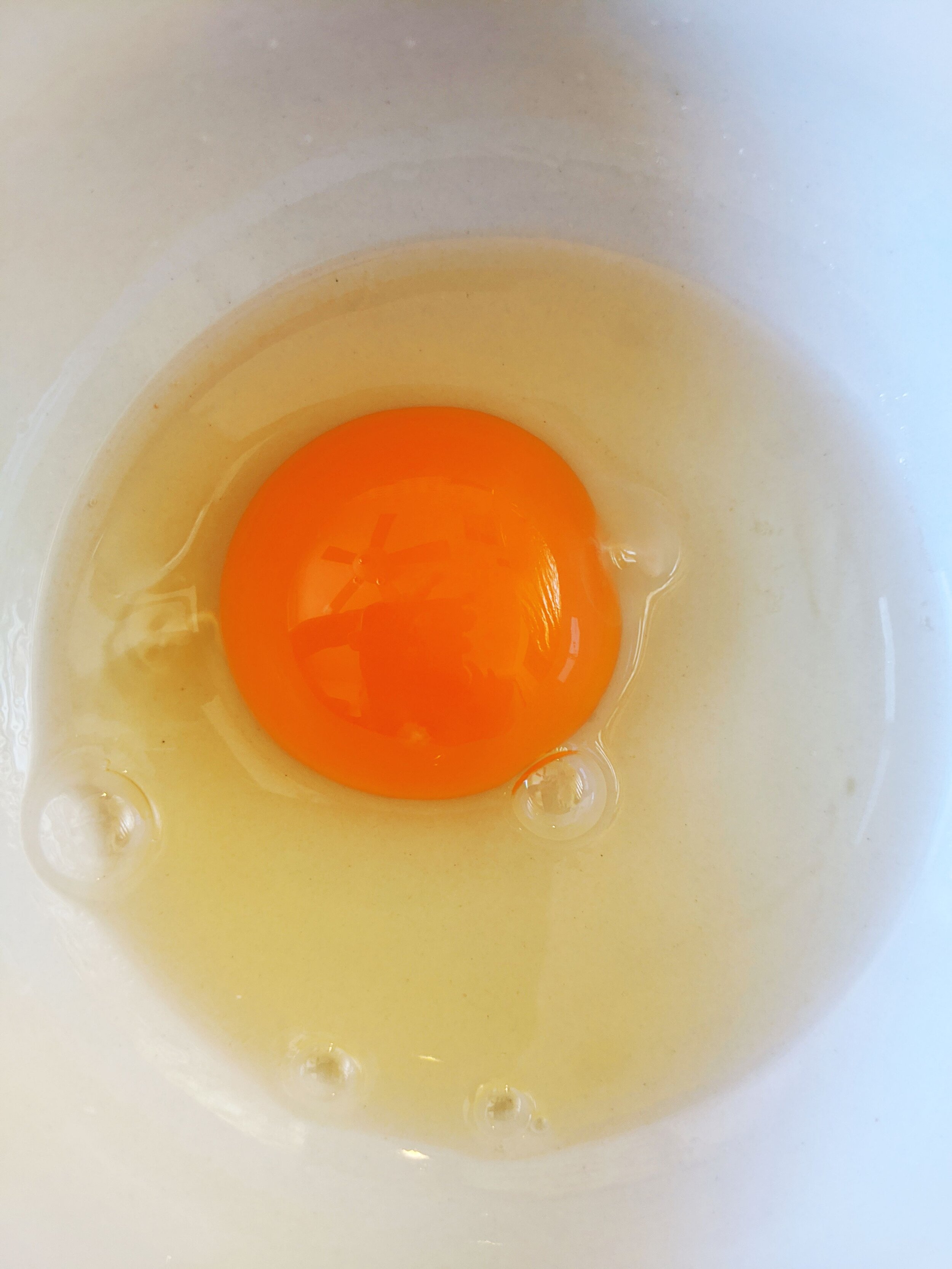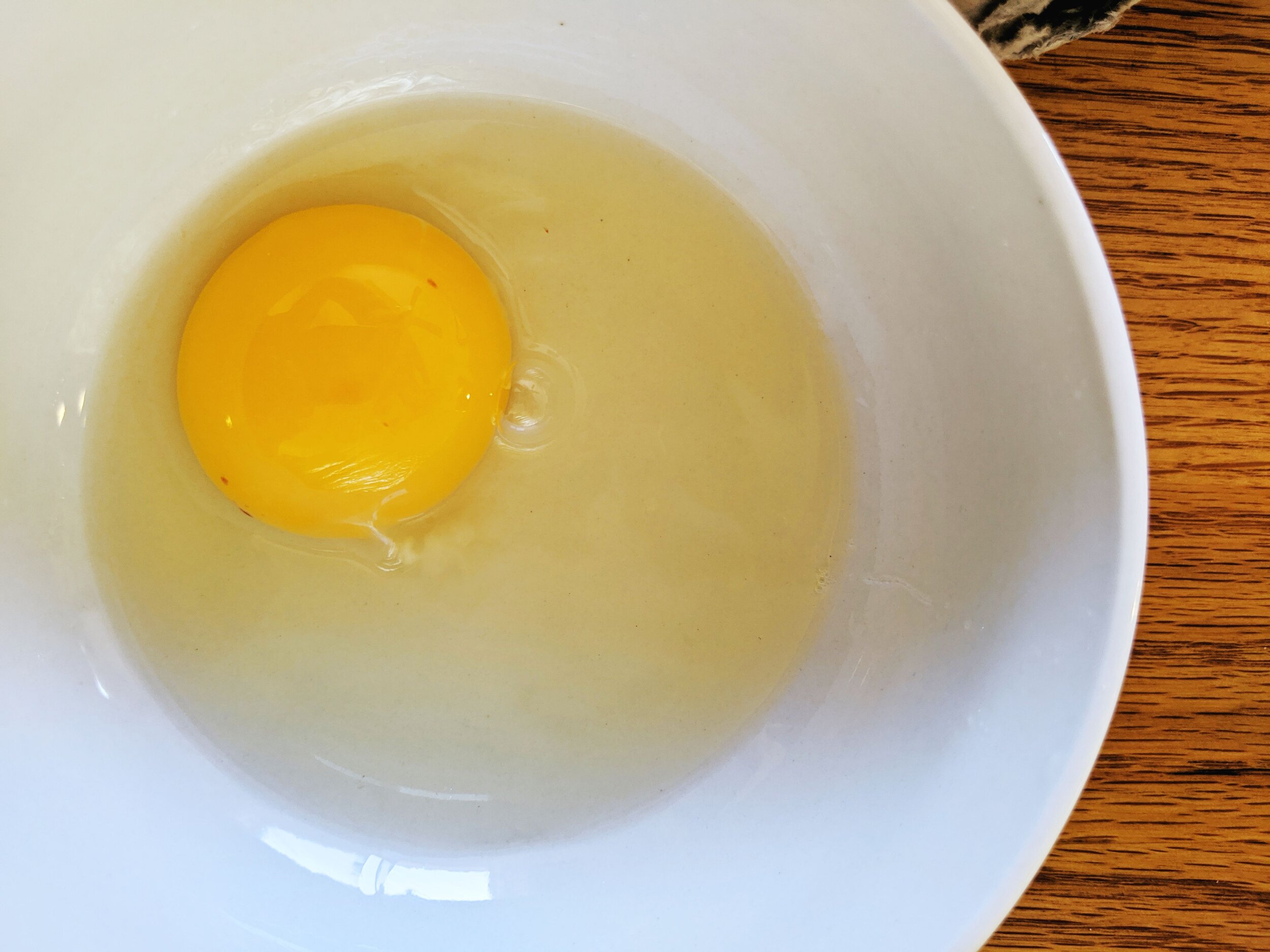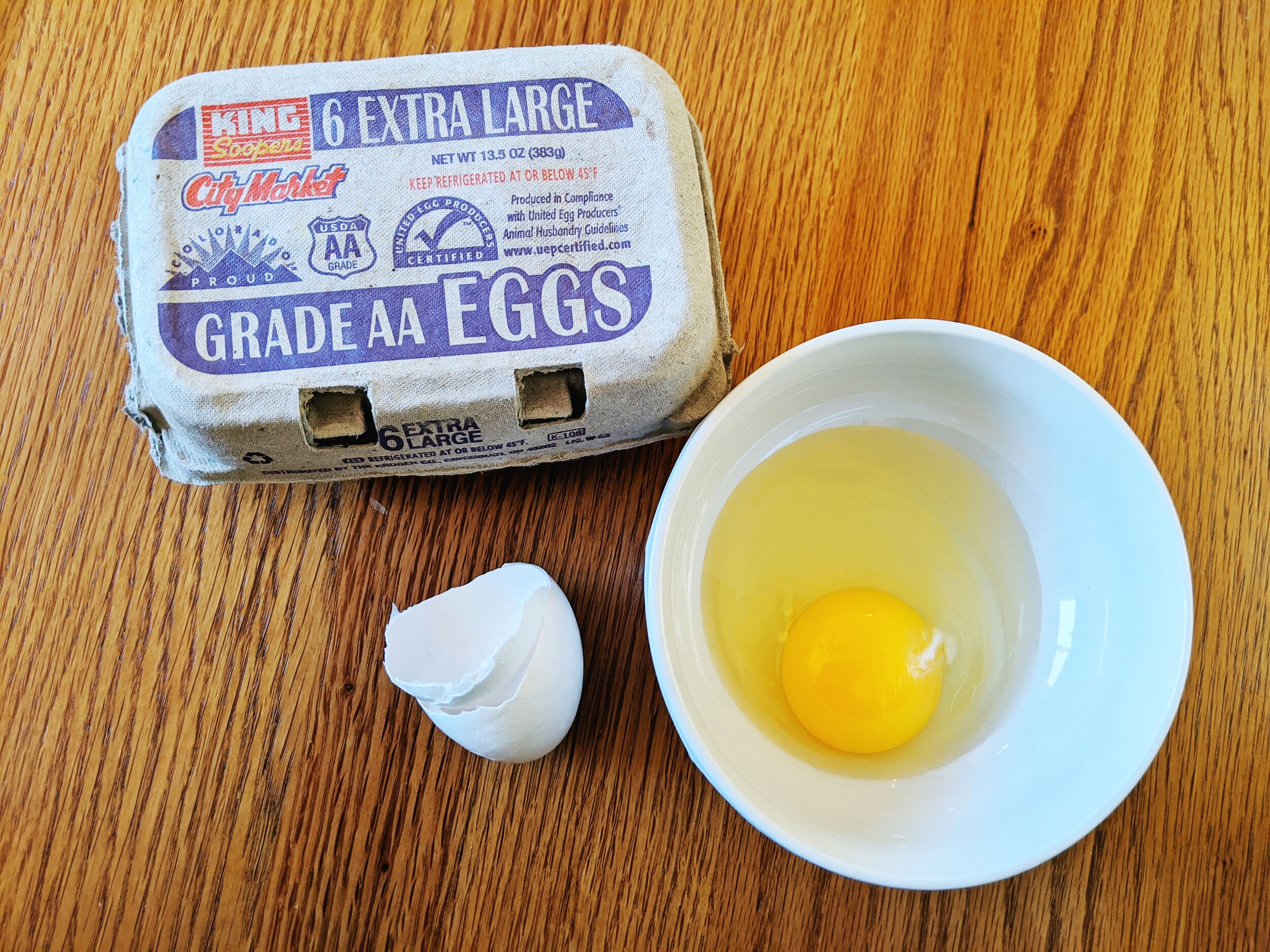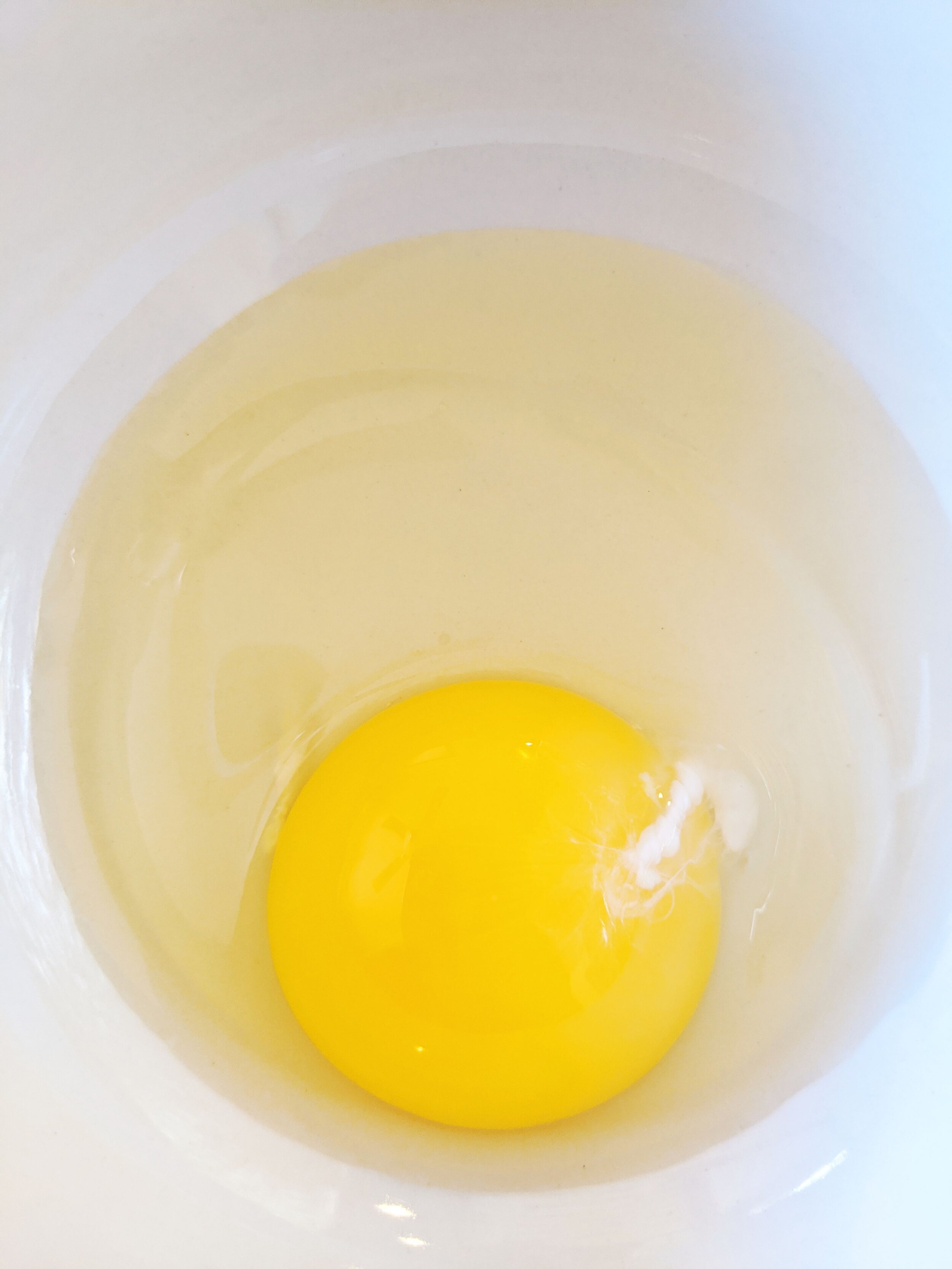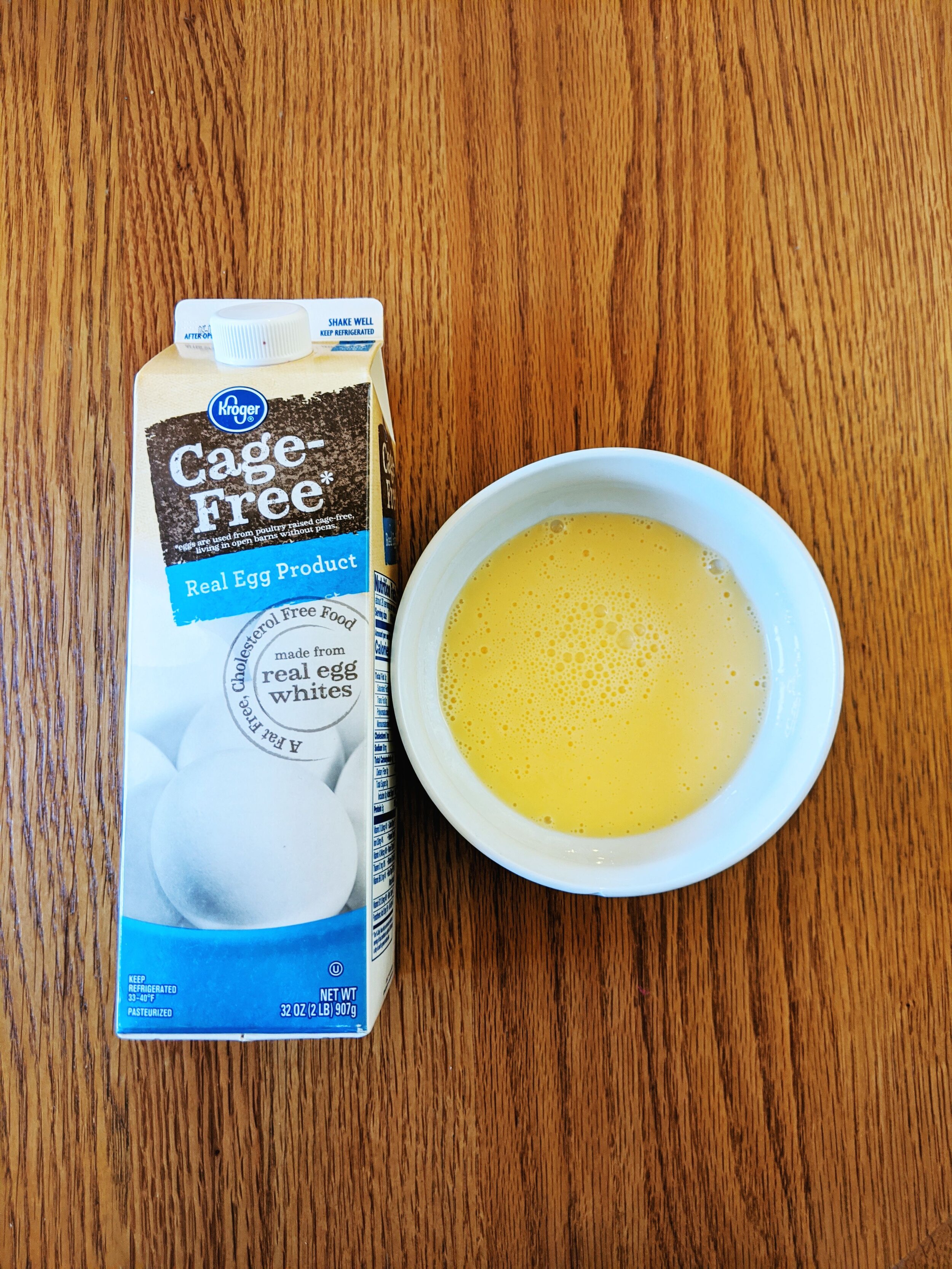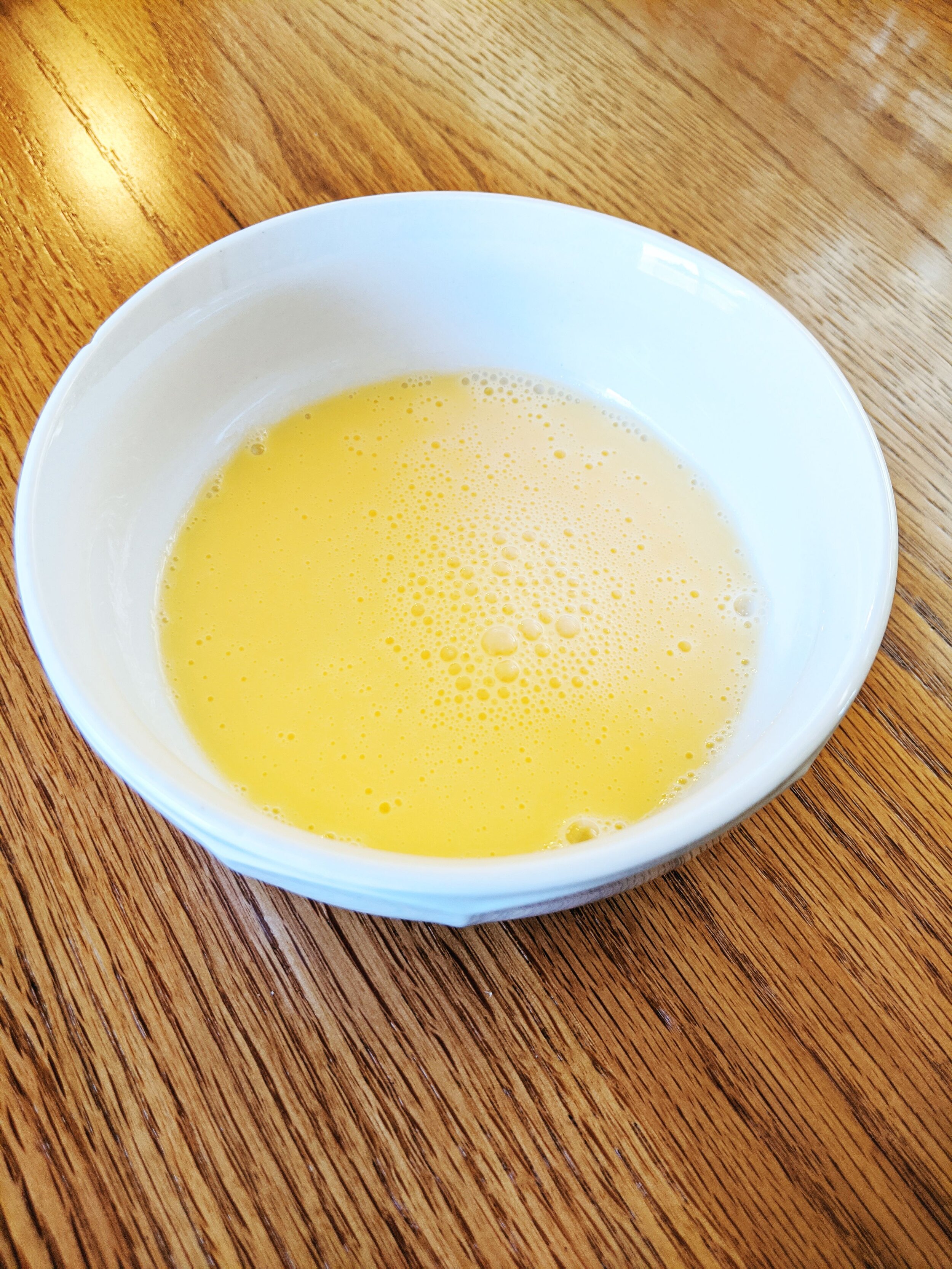Eggs are one of the best nutrient dense foods but not all eggs are created equal! Just like choosing good meat and vegetables, it’s important to choose good, quality eggs. This topic is not discussed very often, so in this post I’d like to lay out for you some of the main character qualities to look for in a good nourishing egg.
Just like with any food, it’s best to rely on your five senses to determine a particular food’s quality. Some of this can only be done with experimentation, so I encourage you to purchase a variety of brands or eggs from local farmers and make your own observations on freshness, quality, and nutrient density.
I love that I was able to see first hand what a best quality egg looks like when I had my own chickens. They were fed small grain, organic, non-GMO, corn free soy free feed, they had constant access to outside during the day, and ran over half an acre of pasture. I understand not everyone has access to a farmer, and not everyone can have their own laying hens,so this blog post is to help you determine which eggs that are available to you are the best quality.
First, let’s talk about some confusing terms. There’s not a lot of regulation on these terms, and marketing experts often use them to promote their product, but it does not necessarily mean their eggs are of higher quality.
Color of Egg: The color of an egg is determined by the breed of chicken that lays it. No chickens are inherently better than others, so the color of your egg alone doesn’t matter in terms of nutritional content or quality.
Cage Free: This term only indicates that the chickens are not confined in a small, individual cage for 24 hours a day. Cage free does not mean the chickens have access to outside and they may be confined in crowded spaces.
Organic: This refers to the food the chicken is eating. Organic food is better than conventional food because it decreases the number of nasty pesticides and GMOs, but these chickens’ diets are likely heavy in soy and corn or anything else as long as it’s labeled organic.
Vegetarian Fed: This is not a natural diet for a chicken! A natural chicken diet consists of bugs, roadkill, grasses, grains and seeds. They are omnivores! If you limit a chicken to a vegetarian diet, you are messing with nature and your egg will not contain the full amount of nutrition it should.
Free Range: Free range indicates that chickens have to “have access to the outdoors” but it doesn’t specify the amount of space or the amount of time the chickens have to be outside. There may not even be enough room outside for each chicken so some chickens may never be outside.
Pasture Raised: Pasture Raised indicates chickens who are given enough space for all of them to be outside and are moved to fresh pasture regularly, giving them access to new bugs and grass. This is the best choice for any egg you purchase. These chickens have the best opportunity to eat the appropriate chicken diet, get sunshine, and be happy!
Omega-3: Omega-3’s are important in our diet, but an egg from a chicken fed a natural diet will have plenty of Omega-3 in it. If a company is advertising Omega-3 eggs, it is very likely they are giving supplements to ensure a certain level of Omega-3’s in their eggs. Depending on the quality of supplement, this may or may not be good for you, and again if the chicken is given access to sun and an omnivore diet, an additional supplement is unnecessary. On that note, there are different foods and supplements that can be fed to chickens to make their yolks more orange or darker yellow. This does not, of course, equal the same quality of nutrition that a pastured chicken can put in their egg.
Certified Humane: This is a label given to egg raisers who meet the requirements of the Humane Farm Animal Care. In essence, it means the birds are treated well, not starved or debeaked, but does not necessarily mean they are given access to outdoors and beak trimming is also allowed.
Grades: The grades AA, A, & B on the side of the package don’t just refer to size. They refers to the quality and freshness of the egg. “AA” is the best, according to the USDA, but we will teach you how to grade your own eggs!
New advertising measures are used constantly! If you see something new advertised on a carton of eggs, it’s a great idea to look up what qualifications, if any, are necessary to add that label to their carton.
Now that we understand some of the marketing definitions, you can purchase the best quality eggs and do some observations to determine the freshness and quality of an individual egg.
First, look at the thickness and smoothness of the egg shell. A shell that is very thin is deficient in calcium. An overly thick shell likely has an artificial amount of calcium supplementation in the chicken’s diet. A bumpy or disfigured egg shell can indicate health problems or deficiencies in the chicken.
Second, we look at the color of the yolk. Chickens given access to bugs and grass lay eggs with deeper yellow to orange yolks. As a reminder, there are substances, including natural ones, that can be fed to a chicken to make their egg yolk artificially more yellow. Also keep in mind that there is less green plants and bugs in the winter, so even good quality eggs will likely have lighter yellow yolks in the winter.
Third, we look at the white of the egg. A fresh and nutrient rich white will hold together and stand together in the pan. A poor quality or old egg white will spread out over the entire area. I’ve heard that the quality of the egg white is what professional chefs use to judge the quality of an egg.
We purchased a variety of eggs from King Soopers and Natural Grocers to do these observations for this experiment. Please refer to the pictures and analysis below!
Farmer’s Hen House
This brand is my “bulk” go to egg for washing my hair.
Type of Egg: Free Range Large Brown Grade A from Natural Grocers
Price at Purchase Time: $3.45
Labels on Carton: Free Range
Description of Shell: Good thickness, cracked only where hit and didn’t splinter. Fairly smooth.
Color of Yolk: Dark yellow.
Spread of White: Mostly holds together, with a little spread.
Vital Farms Pasture Raised
Type of Egg: Pasture Raised Large Brown Grade A
Price at Purchase Time: $5.69
Labels on Carton: Pasture Raised
Description of Shell: Very smooth, a little thin but broke mostly clean.
Color of Yolk: Dark, deep yellow
Spread of White: Held tightly together
Happy Egg Free Range Eggs
This is the brand that I recommend as a good starting point in looking at higher quality eggs. They are a more accessible egg brand, available at both King Soopers and Natural Grocers.
Type of Egg: Happy Egg Free Range Eggs
Price at Purchase Time: $5.99
Labels on Carton: Free Range Pasture Raised Large Brown Grade A Eggs
Description of Shell: Smooth but a little thin
Color of Yolk: Very deep orange
Spread of White: Held together a little but runnier
Simple Truth Cage Free Eggs
Type of Egg: Cage Free Large Brown Eggs from Simple Truth
Price at Purchase Time: $2.99
Labels on Carton: Cage Free Large Brown Eggs Grade AA
Description of Shell: A little difficult to crack and slightly bumpy
Color of Yolk: Light yellow
Spread of White: Runny and not held together
King Soopers City Market Extra Large Eggs
Type of Egg: King Soopers City Market Extra Large Grade AA Eggs
Price at Purchase Time: $1.39
Labels on Carton: Extra Large
Description of Shell: Thin and bumpy
Color of Yolk: Light yellow
Spread of White: Liquid, doesn’t hold together.
Taste of Egg:
Cage Free Real Egg Product
For comparison, we purchased a “real egg product.” Unlike an egg, which needs no ingredient description, this product contains 19 added ingredients, vitamins, and minerals. I think in this product they are making up for lack of egg yolk (which they omitted) which contains most of the nutritional value of an egg. Let’s do the same analysis of this product!
Type of Egg: Cage Free “Real Egg Product'“ from Kroger
Price at Purchase Time: $4.49
Labels on Carton: Cage Free, Made from Real Egg Whites, Cholesterol Free, Fat Free Food
Description of Shell: Unknown, Not Present
Color of Yolk: Unknown, Not Present
Spread of White: Unknown


